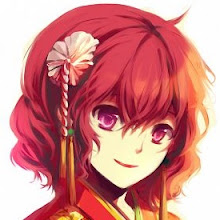But wait, you may be wondering, wasn't Dreamfall released over four years ago, on the bulky original Xbox that's all but obsolete now? The answer to your question is, of course, yes. I happen to be one of the few gamers who chose not to invest in one of the next-gen consoles (are they even next-gen anymore?), deciding instead that there are plenty of great Xbox 1 games I have yet to enjoy. Accordingly, I've accumulated quite the collection of last-gen games over the past few years, picked up from eBay for a pittance. Sure, occasionally this configuration has its detriments, but my gaming time has been limited enough of late, and fortunately most of the games I really want to play (read: Bioware games) have been available on the PC as well. Thus, I've had little trouble biding my time until something I really want to play releases for a new system. Shenmue III, for example.
 Now then, less about me, more about the game at hand. The Longest Journey series revolves around a set of complementary parallel worlds: Arcadia, which has evolved around magic, and Stark (essentially a futuristic Earth), focused on science and technology. Although the universes are technically independent, they are nonetheless inextricably tied in ways not fully understood. The star of Dreamfall is a young Stark native named Zoë Castillo, a recent college dropout who seems to have lost direction in life. Fortunately for her, things quickly take a turn for the interesting. A simple favor for her best friend turns up a sinister plot, propelling Zoë into a journey that takes her not only around the world, but also between them.
Now then, less about me, more about the game at hand. The Longest Journey series revolves around a set of complementary parallel worlds: Arcadia, which has evolved around magic, and Stark (essentially a futuristic Earth), focused on science and technology. Although the universes are technically independent, they are nonetheless inextricably tied in ways not fully understood. The star of Dreamfall is a young Stark native named Zoë Castillo, a recent college dropout who seems to have lost direction in life. Fortunately for her, things quickly take a turn for the interesting. A simple favor for her best friend turns up a sinister plot, propelling Zoë into a journey that takes her not only around the world, but also between them.My description may sound clichéd, but I still feel the plot of Dreamfall is its strongest element. Strong voice-acting and good scripting add believability and memorability to each of the characters, and the the world(s) simply crawl with history and detail. The story is well-timed, switching between various story arcs at strategic points so as to create a continual atmosphere of tension and mystery. The choice of having three playable characters is a clever concept, particularly when the characters' paths inevitably cross. Still, the plot development is not without its flaws. Despite generally excellent writing, occasional segments of narrative seemed stilted or artificial. Although the concept of two worlds and playing as different characters is pretty neat, some of the transitions can be a little...stark (haha, see what I did there?), with characters often shrugging off their recent extraordinary experiences and simply picking up where they left off. Lastly, the ending was, to put it bluntly, unsatisfying. The last fifth or so of the game felt rather rushed, tying very loose ends to some main plot threads and leaving at least as many hanging. Reaching the end credits of the game was a real "WTF?" moment for me, as I felt the game could easily have accommodated a few more hours of storytelling.
As far as the actual gameplay is concerned, the best way I can describe it is a giant fetch-quest game with some tacked-on combat, puzzle, and stealth elements. Most of the game will involve piloting a character from Point A to Point B, realizing at Point B that you need some item from Point C, going to Point C to retrieve said item, and so forth. Admittedly, the puzzle elements may be more than "tacked-on"; nearly every area has a few challenges that must be completed before advancement, but most can be solved by examining the immediate vicinity for important items or by placing a call to Zoë's friend Liv. The combat elements, however, are less refined; fighting is limited to only a few areas, and can easily be completed using cheap tricks that the enemy AI can't seem to figure out for the life of them. Likewise, the stealth elements are also localized to small portions of the game and usually end up being more irksome than exciting. Certain features like the Focus Field, while interesting in concept, are used so rarely in the game that they're easy to forget about, leading to large amounts of frustration during the game sections in which they're actually necessary.
I've focused much on the negative aspects, but I do want to emphasize that Dreamfall is, in fact, an enjoyable game. Despite its shortcomings, Dreamfall's imaginative world, great cast of characters, gripping story, and lavish attention to detail still allows the game to shine, and shine well. Still, it's important to note that Dreamfall is essentially an interactive story, and even then not without . Even as a self-proclaimed fan of high-story, low-gameplay titles (Shenmue II, anyone?), I found myself wishing, at the end of hours of enthralling narrative, that Dreamfall might have been just a tiny bit more enjoyable.
Final Score: 3.5/5

xds


No comments:
Post a Comment